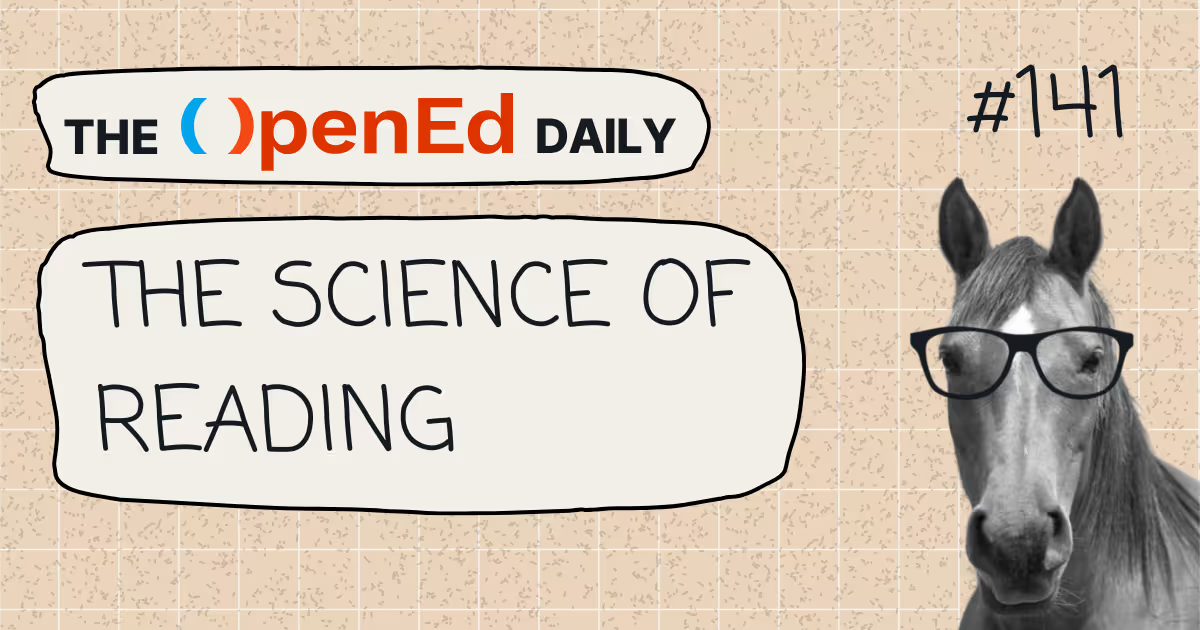
🐴 The Simple Formula Behind Reading Success (#141)
🐴 The Simple Formula Behind Reading Success (#141)
🐴 The Simple Formula Behind Reading Success (#141)
3 Quick Bites:
🍎 The simple formula behind reading success
🍎 Why phonics still matters, but isn’t the full story
🍎 A free, science-backed reading toolkit
First time reading? Subscribe and learn more at OpenEd.co.
💡 THOUGHT
THE SIMPLE VIEW OF READING
Reading Comprehension = Decoding × Linguistic Comprehension.
If either piece is weak, reading comprehension breaks down. This isn’t just theory—it’s the core issue behind most reading struggles.
A child who struggles with decoding (turning letters into sounds) will fall behind, no matter how strong their vocabulary or reasoning skills. Conversely, a child who decodes well but lacks language comprehension (understanding words and sentences) will also struggle.
Because it’s multiplication, a zero in either area results in failure. The key to better reading instruction is diagnosing which part of the equation is broken and targeting the fix.
📊 TREND
THE SCIENCE OF READING (WHY PHONICS STILL MATTERS)
For decades, reading instruction was a battleground between phonics-based methods and “whole language” approaches. Today, the debate is largely settled—explicit, systematic instruction in foundational skills is essential to help most children become proficient readers.
But the “Science of Reading” is more than just phonics. It’s a body of research from neuroscience, cognitive psychology, and education that explains how our brains learn to read. Unlike speaking, reading isn’t innate; our brains must forge new neural pathways connecting visual recognition (letters), phonemic awareness (sounds), and meaning. Phonics is a necessary piece of the puzzle—just not the entire picture. Kids also need vocabulary development, fluency practice, and rich comprehension activities to thrive.
🔨 TOOL
UFLI FOUNDATIONS TOOLKIT
If you want a structured, research-based way to teach reading at home, The University of Florida Literacy Institute (UFLI) offers a completely free toolkit.
What’s inside?
📚 138 scripted lessons that follow a proven, systematic sequence
🔠 Eight-step routines covering phonemic awareness, phonics drills, new concepts, word work, and fluency
📊 Built-in assessments to track progress and target weak spots
📌 Covers 128 essential skills, from letter-sound relationships to spelling patterns
Although it’s designed for educators, you don’t need special training—just a commitment to consistent, structured practice.
That’s all for today! See you tomorrow.
– Charlie (the OpenEd newsletter guy)
P.S. If you’d prefer to just receive the weekly edition, you can change your subscription settings here.
Subscribe to The OpenEd Daily
Join 20,000+ families receiving curated content to support personalized learning, every school day.
.webp)



.png)
.png)
.png)